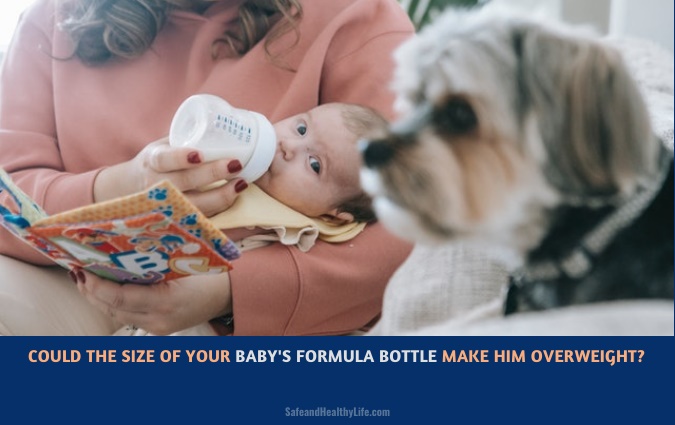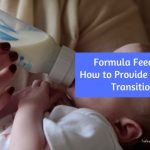
The problem of overfeeding is mainly faced by parents who prefer formula feeding. This is because the best food for a baby is breast milk. Infants keep normal body weight and feel great by nursing with it.
This is due to natural self-regulation. In other words, the baby simply can not eat more than she or he needs.
Unfortunately, we cannot say the same about babies who get milk formula. Sometimes, it is impossible to breastfeed your baby due to particular circumstances.
In this case, there is nothing else to do but start feeding your baby from a bottle. The baby bottle allows you to provide your baby with breast milk, infant formula, and other liquids.
This is why many parents want to know: Does the size of the baby bottle really matter? And what causes babies to be overweight?
Does it matter what baby bottles to choose?
Even if you plan to breastfeed exclusively, you need a bottle by 6-9 months. You have to introduce water or milk porridge into your baby’s diet at this age, and you can’t do it without a bottle.
Choosing a feeding bottle is a big decision. The wrong pacifier and bottle can affect the well-being and overall condition of the baby. Please pay more attention to such important factors as the bottle’s material, size, and shape.
As for the size and the possibility of overfeeding the baby, you do not have to be worried because the suitable bottle for newborns is up to 80-150 ml.
For babies from six months, a great option can be a bottle of at least 250 ml.
Smaller bottles are used to hold liquids such as water and other drinks. Bottles with a larger capacity can be used, for instance, for porridge.
Often there is a special scale on baby bottles, which makes it much easier for parents to organize their baby’s diet.
So from this point of view, the size of the baby bottle has no direct connection to overweight babies.
How to avoid overfeeding?

Photo Credit: Pexels
The only way to avoid overfeeding is to give the baby the right amount of formula. By the way, it is essential that the composition of the product has a clear resemblance to breast milk.
In particular, the list of ingredients must include lactose or milk sugar. When choosing milk formula, remember that it should not be too sweet as a baby gets too many calories, which leads to gaining excess weight.
Many parents try to avoid artificial sweeteners in baby food and milk formulas. There are formulas with good compositions without these substances – one of them is the Lebenswert formula.
The other quality organic option without maltodextrin in its composition is also HIPP baby formula.
In this regard, it is necessary to pay attention to the number of carbohydrates. In addition, even if you choose a really good quality product, you need to dilute it by strictly following the instructions.
How much does my baby eat?
When a baby is exclusively breastfed, he or she is fed “on-demand” when the baby gets hungry, and the amount of breast milk can vary. When talking about formula feeding, parents need to know how much formula to make for their baby.
There are several ways to estimate the amount of formula for an infant. The most accurate is calculating by baby’s weight, not by age, since babies of the same age may have different weights and, accordingly, different stomach sizes.
A relatively simple way to calculate nutrition based on weight is by volume. The daily amount of a baby’s food:
- from 2 weeks to 2 months is 1/5 of his/her body weight;
- from 2 to 4 months, 1/6 of his/her body weight;
- from 4 to 6 months, 1/7;
- from 6 to 12 months, 1/8 of his/her body weight.
Babies of the first 3 months usually eat 7-8 times a day, from 3 to 6 months – 6-7 times, and over 6 months – 5 times a day. The calculated daily amount of food should be divided by the number of feedings – and you get the amount of one meal.
But all of these methods are suitable only for healthy, full-term babies. These are general principles of calculation, but all infants are different. Some may demand a little more or less than calculated.
Parents should carefully observe the baby’s behavior after feeding: this will help understand whether the baby has enough food.
There are other important nuances. In particular, the infant’s appetite depends on the time of day. Usually, the baby eats eagerly in the morning so that you can give a little more formula at the beginning of the day.
If the baby ate less than the norm but began to hum happily and want to play, it means that your little one is full. In this case, do not offer him or her a bottle too many times.
About The Author:
Anne Kamwila is a freelance content writer and a digital marketer. She is passionate to write on health, technology, and business-related guides, news, and books.




